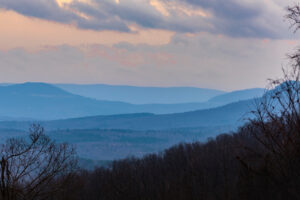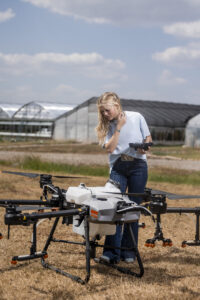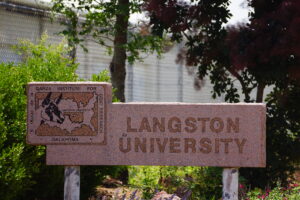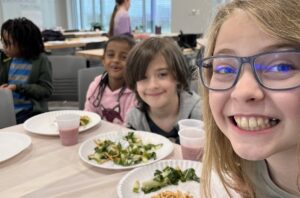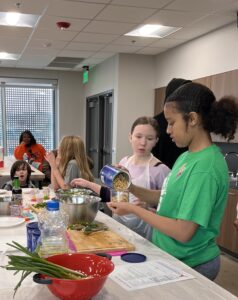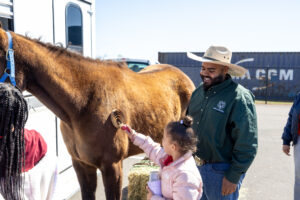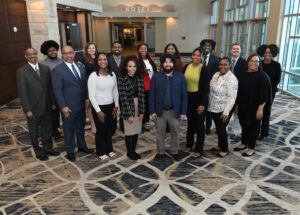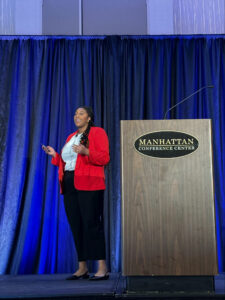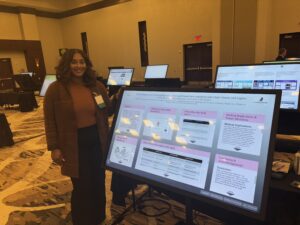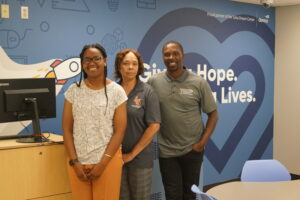
Keep Dreaming: Langston University Cooperative Extension partners with Tulsa Dream Center to bring STEM opportunities to Tulsa children
(This story was originally published in ‘E Roar | Volume 2 Issue 5 on Sept. 12, 2025)
by Ellie Melero
It was a bright and clear Tuesday morning, and Tulsa was just starting to heat up under Oklahoma’s unforgiving summer sun. In the north part of the city, cars drove with their windows down and people walked on sunbaked concrete sidewalks as they made their way to the Tulsa Dream Center.
Despite the early hour, the north campus of the Tulsa Dream Center (TDC) was already a hive of activity. The lobby was filled with people hoping to take advantage of one of the many services TDC provides the community. Across the parking lot, volunteers were getting ready for the twice-weekly grocery giveaway. On the second floor of the Center, there were classrooms full of eager children waiting to see what activity they were about to do with Langston University.
For six weeks in June and July, the Department of Family and Consumer Sciences (FCS)–a part of LU’s Cooperative Extension and Outreach Programs through the Sherman Lewis School of Agriculture and Applied Sciences–hosted interactive STEM workshops for the TDC’s Dream Academy Summer Camp. The activities ranged from sewing classes to basic coding lessons, and they were always a highlight of the week for the kids.
“The kids, they loved it,” said Pastor Tim Newton, the executive director of TDC. “They’re experiencing things and seeing things that they otherwise wouldn’t have known even existed.”
LU Extension has worked with TDC a handful of times over the past three years, but both groups have wanted to expand the partnership for a while. This year, they took the first step forward by collaborating on TDC’s spring and summer day camps, and the partnership will continue growing as LU Extension grows its footprint in Tulsa.
It all started with STEM Field Day.
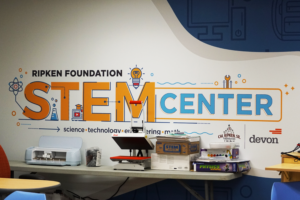
For several years, Extension Educator Shar Carter has organized a STEM Field Day in Tulsa at a local butterfly farm. She works with the statewide FCS team and collaborates with other LU departments, local schools and outside organizations to put on free, fun and engaging educational activities for the kids, such as demonstrations from Langston University’s Drone Technology and Precision Agriculture program.
In 2022, STEM Field Day fell on Monroe Middle School’s fall break, so Carter had an opening for 100 students to attend the event. She reached out to TDC to see if they would be interested, and Pastor Tim wasted no time gathering kids to fill the open spots.
“He was like, ‘I can get you kids,’” Carter said. “And from then on, we’ve been working with the Dream Center. They are just a feeder for so many schools in Tulsa that it just made sense.”
TDC is one of the largest providers of after school childcare in Tulsa, and it serves between 700–1,000 kids daily. The average household income for these families is $27,000 per year. Because of its reach, Carter knew working with TDC would be a strategic partnership for LU Extension.
This spring, Carter approached Dr. Tiffany Williams, the program leader for Family and Consumer Sciences, about an opportunity to grow their existing relationship with TDC. Dr. Williams was immediately on board.
“The needs of the youth as well as the adults who attend TDC closely align with the outreach mission of our cooperative extension program,” Dr. Williams said. “Shar recognized this and developed a partnership with TDC to implement the Children, Youth and Families at Risk program. She thought that would be a great way to really start this partnership between Langston and TDC, and she spearheaded developing that partnership.”
Pastor Tim had invited FCS to be a part of TDC’s spring break day camp in March, so Carter and Dr. Williams decided to do a week-long culinary camp for the kids. They worked with a professional chef to develop the program, and every day they taught the kids how to prepare healthy and delicious meals. They even sent the kids home with leftovers to share with their families.
As is her forte, Carter had fun explaining to the kids how everything from the fractions they used to measure ingredients to the chemical reactions as the food cooked tied back to STEM. For Dr. Williams, the camp was about educating the kids about healthy eating and motivating them to share the knowledge with their families. For Pastor Tim, it was about getting the kids excited to learn.
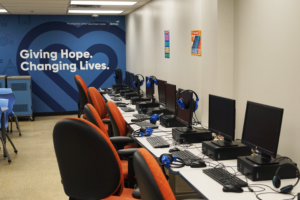
The culinary camp was such a success that Pastor Tim asked them to come back for the Dream Academy Summer Camp. FCS takes a wholistic approach to education, focusing on teaching people of all ages important life skills, so Dr. Williams and Carter got the other extension departments involved. They did different activities every week, and Carter said the kids didn’t even realize how much they were learning.
“I tie everything that we do back to math, critical thinking and reading comprehension,” Carter said. “I think youth learn better if they’re having fun.”
One of Pastor Tim’s primary goals for TDC’s educational programs is to expand the kids’ minds, and he says the activities they do with LU go a long way toward achieving that goal. Not only does LU Extension make learning fun, but it also exposes them to new things they would probably never interact with otherwise.
In addition to helping them build foundational knowledge in areas like agriculture and food science, Pastor Tim said LU Extension is inspiring the students to pursue new interests. He anticipates there will be a long-term economic impact from this partnership as the children grow up and become more motivated, confident and prepared to pursue a higher education.
“As those kids get exposed to those things, they’ll be able to leave here, earn a good education, earn wages, and be able to come back into this community,” Pastor Tim said. “It will change the trajectory of this community, and really, that’s the goal.
Since the spring, the collaborations between LU and TDC have been steadily increasing. Thanks to the cooperative efforts of the statewide FCS team under Dr. Williams’ leadership, Community Resource Development’s Joshua Davis, LU Extension’s leadership team and Pastor Tim, LU and TDC have completed several community projects and begun work planning more
Over the summer, they planted a community garden at TDC’s north campus, which will serve not only as an educational tool for future Dream Academy programming but also to address food insecurity issues in an area considered a food desert.
Dr. Williams has created a nutrition education initiative to teach TDC’s constituents about healthy eating, and she recently launched a nutrition education website that is a prototype for an app.
Carter is working to start a quilting club for community members of all ages, and she hopes to offer more fiber arts programming as the resources become available.
LU Cooperative Extension and Outreach hired a new 4-H educator, Marquisha Thomas, to bring LU’s 4-H and Youth Development programs to TDC.
These are just some of what the group has accomplished through this partnership, and they are continually exploring new ways to collaborate for the good of the community. As Langston University’s Cooperative Extension works to expand its programs around Tulsa, Carter, Dr. Williams and Pastor Tim are excited to see what the future holds.


